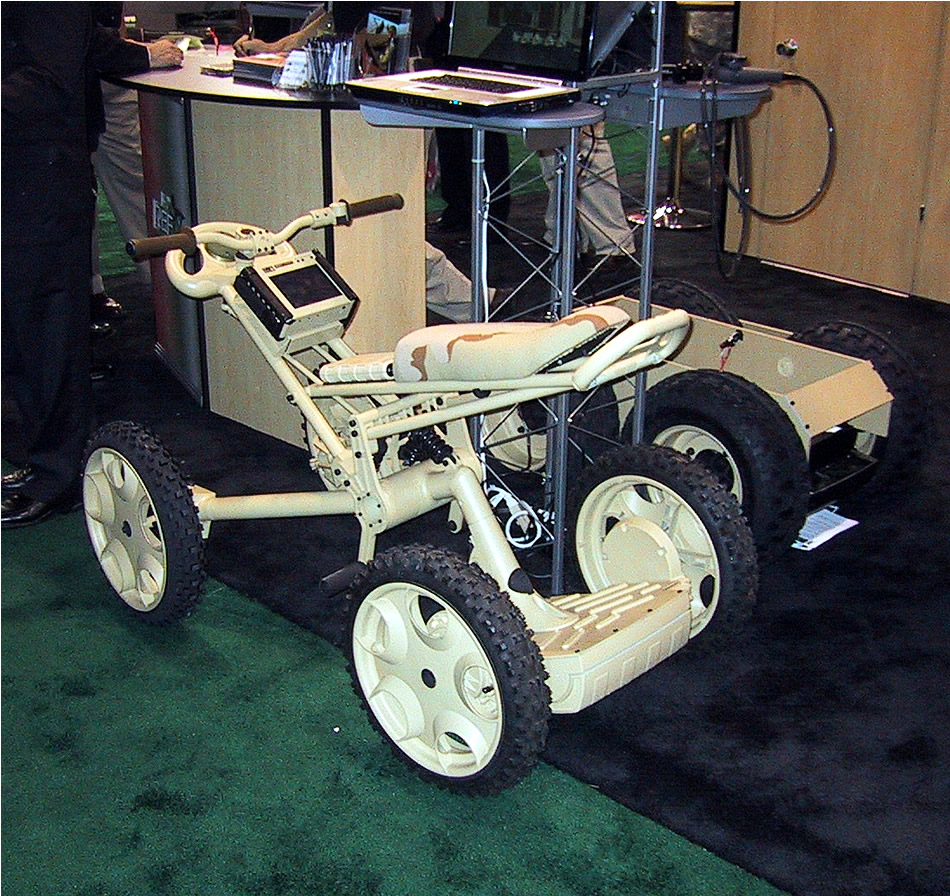
Posted: 10/01/2005
Discussion Board on this Photo
When the Segway (www.segway.com) personal transporter first came out at in late 2001, it was supposed to be a radical and revolutionary transportation device so powerful it would change the world. Since then, the two-wheeled $5,000 vehicle has not caught on in a big way, leaving the company to find other sales opportunities for its technology. One of these has been the U.S. Army's Rapid Equipping Force (REF).
REF is designed to find off-the-shelf or near-term developmental items that can be quickly evaluated and bought for use out in the field, rather than going through the usual multi-year process to bring in new gear. The four-wheel Segway Concept Centaur Vehicle is on a fast-track development evaluation at REF and needs to show its stuff within the next year, or it gets dumped.
REF thought well-enough of the militarized Segway effort to bring it along as a show-and-tell piece at an Army association conference earlier this month. Currently, the GI Segway is able to travel on either two or four wheels at a top speed of 40 kilometers per hour � not fast, but it beats marching around with over 100 pounds of gear on while patrolling. Since it has a quiet electric motor, it has a very low noise and heat (IR) profile, so you can more easily creep up on people. It can carry up to two riders or 300 pounds of payload.
With a pair of 400 watt/hour batteries, it goes around 16 kilometers; not bad for puttering around the base and short-range patrols, but you still have to recharge the thing. The U.S. Army already has enough of a headache to keep its existing power-hungry devices happy, including radios, night weapons sights, and computers powered up. The Segway would be yet another device that needed batteries, or a generator for recharging. Of course, a soldier could carry along more batteries for it, but soldiers have typically shown a preference to carry more ammo and extra batteries for the radios and weapons rather than for the new gizmos. The tan-colored demo model had a methanol fuel-cell mockup rigged on the vehicle for demonstration purposes. � Doug Mohney
More Photos
1 |
2